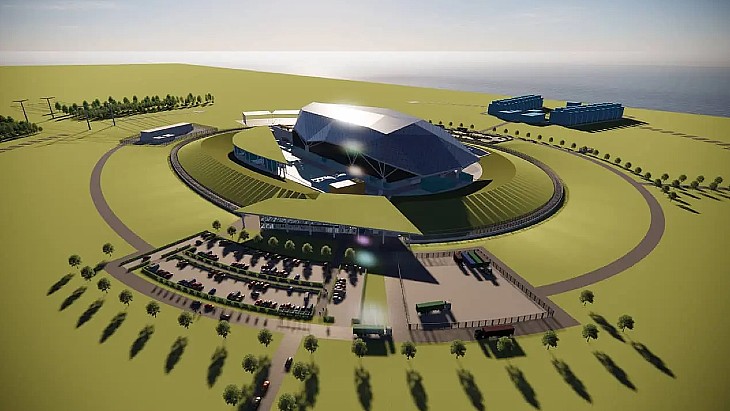"More nuclear power plants will be approved across England and Wales as the prime minister slashes red tape to get Britain building - as part of his Plan for Change," the government said. "Reforms to planning rules will clear a path for smaller, and easier to build nuclear reactors – known as small modular reactors (SMRs) – to be built for the first time ever in the UK."
The reforms include allowing new plants to be built anywhere across England and Wales, not just in the eight existing nuclear sites specified in current planning rules. However, the government said there will "continue to be robust criteria for nuclear reactor locations, including restrictions near densely-populated areas and military activity, alongside community engagement and high environmental standards".
It said "the refreshed planning framework will help streamline the process to encourage investment and enable developers to identify the best sites for their projects, supporting development at a wider range of locations". Developers will be "encouraged to bring forward sites as soon as possible at the pre-application stage in the planning process, speeding up overall timelines".
The reforms also include removing the expiry date on nuclear planning rules so that projects do not get "timed out" and industry can plan for the long-term.
For the first time, in addition to large-scale nuclear power plants, new nuclear technologies such as SMRs and advanced modular reactors will be included, "providing flexibility to co-locate them with energy-intensive industrial sites such as AI data centres".
In addition, a Nuclear Regulatory Taskforce will be established to ensure nuclear regulation incentivises investment to deliver new projects more quickly and cost efficiently, while upholding high safety and security standards. The taskforce - which will report directly to the prime minister - will speed up the approval of new reactor designs and streamline how developers engage with regulators. This taskforce will better align the UK with international partners so reactor designs approved abroad could be approved more quickly, minimising expensive changes. It will also examine how to reduce duplication and simplify processes where there are multiple regulators covering overlapping issues, as well as ensuring regulatory decisions are both safe and proportionate.
"This country hasn't built a nuclear power station in decades - we've been let down, and left behind," said Prime Minister Keir Starmer. "Our energy security has been hostage to Putin for too long, with British prices skyrocketing at his whims. I'm putting an end to it - changing the rules to back the builders of this nation, and saying no to the blockers who have strangled our chances of cheaper energy, growth and jobs for far too long."
Reforms welcomed
Last month, the government announced plans to limit legal challenges to major infrastructure projects - including nuclear power plants - to just one hearing in court instead of the current three hearings. It has also set out reforms to end the block and delay to building homes and infrastructure from current environmental obligations.
The announced planning reforms were welcomed by industry, with Tom Greatrex, chief executive of the Nuclear Industry Association, saying: "This is the prime minister's strongest signal yet that new nuclear is critical to the growth and clean power mission. A more streamlined planning system will give certainty to investors, the supply chain and communities, and will enable us to get on with building new nuclear plants on more sites and at pace for a cleaner, more secure power system.
"We need to make Britain the best possible place to build new nuclear, both large-scale and SMRs, which means avoiding unnecessary stumbling blocks and ensuring regulations are proportionate to our urgent need for low-carbon power, energy security and good jobs."
Simone Rossi, CEO of EDF Energy - which is constructing the Hinkley Point C plant and plans to build Sizewell C - said: "As a major operator, investor and developer, EDF welcomes the proposals designed to speed up new nuclear projects in the UK and unlock economic growth. Nuclear is essential to a secure, low-carbon energy system and is the ideal partner to renewables. There is a great opportunity to build new infrastructure across England and Wales, to replace aging stations and take advantage of available skills, existing grid connections and supportive communities.
"The opportunity will only be fully realised with the necessary reforms to planning and regulation, alongside continuing to build on the critical work at Hinkley Point C and Sizewell C to further develop skills and supply chains."
Great British Nuclear (GBN) continues to progress the SMR competition, with contract negotiations currently under way. A final decision on which design or designs will be included in the UK's official SMR programme is expected to be taken in the coming months.
GBN Chair Simon Bowen said: "Nuclear energy is a powerful tool for growing the UK's economy. By expanding the range of sites where safe, secure, reliable, and clean nuclear energy plants can be built, there is huge potential to positively transform areas facing economic uncertainty.
"Today's announcement also signals exciting opportunities to co-locate nuclear energy generation on data centre sites and to decarbonise industrial processes. Nuclear is one of the safest and cleanest forms of energy generation. The new independent nuclear regulation taskforce will help unlock growth and investment by providing clarity and certainty while ensuring regulations are fit for purpose."






_55401.png)
_23009.jpg)







